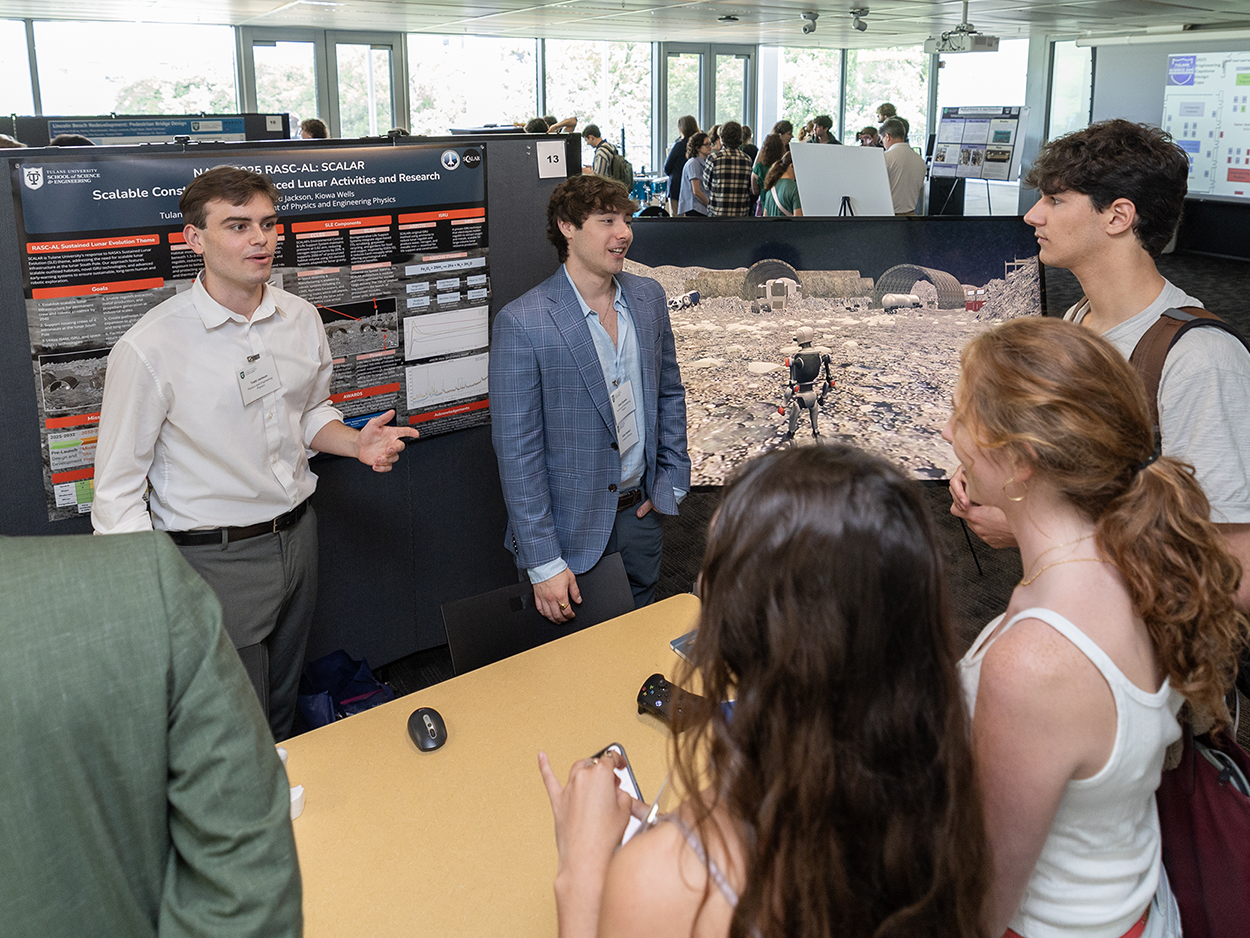Tulane Team Named Finalist in Prestigious NASA Aerospace Competition
Tulane University is one of just 14 teams nationwide selected as a finalist in NASA’s 2025 Revolutionary Aerospace Systems – Academic Linkage (RASC-AL) competition, which challenges university teams to design innovative systems for space exploration on the moon, Mars and beyond.
The Tulane team, led by Senior Professor of Practice Matthew Barrios, is competing in the “Sustained Lunar Evolution” category with its project, Scalable Constructs for Advanced Lunar Activities and Research (SCALAR), a modular lunar habitat designed for long-term missions near the moon’s south pole.
The team developed a full mission “architecture,” outlining crewed operations, modular habitat structures, and supporting surface systems that would allow astronauts to live and work on the moon. The project included ARROW (Ammonia Reduction of Regolith Oxides into Water), a novel system to extract water, iron and nitrogen gas from lunar deposits.
“We believe it puts our hat in the ring for winning this thing,” the team said, especially when they’re competing against schools with large aerospace programs and teams of up to 45 people.
The three-person Tulane team includes engineering physics majors Kiowa Wells, Todd Jackson and Gabriel Epstein. Barrios praised the students’ persistence, noting that their year-long effort involved direct outreach to researchers and firms to integrate cutting-edge technology into their design.
The Tulane team will face off against the Massachusetts Institute of Technology and two teams from Virginia Polytechnic Institute and State University during the forum that will be held June. The teams will present their work to a panel of industry experts for review and discussion, with first and second places gaining the opportunity to present their work at American Institute of Aeronautics and Astronautics 2025 ASCEND Conference.
The students said the project gave them an opportunity to study something outside the scope of Tulane’s standard curriculum, which Wells described as a “choose-your-own-adventure, making it possible to pursue these interests as a major component of my degree.”
“It says something about the character of Tulane University that a school without a traditional aerospace engineering program can still make it to the NASA RASC-AL finals, competing against schools like MIT and Virginia Tech,” Jackson said.
“This opportunity is rare,” said Epstein. “Getting to present to NASA engineers is surreal. We're proud to represent Tulane on this stage.”

